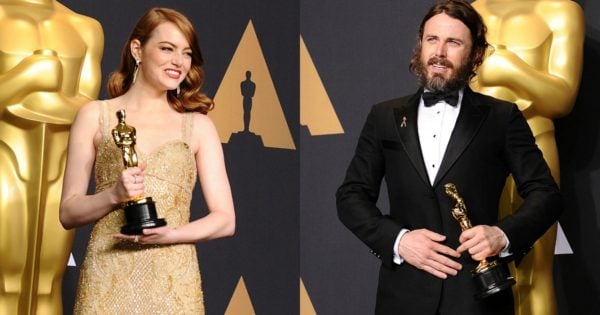When you look at this week’s Best Actor and Actress winners, what’s the one thing you notice?
(Apart from, you know, the fact one has had sexual harassment allegations levelled at them and the other, well, hasn’t.)
“Their ages!” I hear you say. And you’d be right. Oscar-winning actress and star of La La Land, Emma Stone, is just 28. Manchester by the Sea star Affleck is 41.
Without the wisdom of context and an army of statistics, that fact would be fairly unremarkable. The age gap isn’t significant to warrant headlines on its own, and perhaps it just took Affleck a little longer to find his stride in the industry and emerge from a shadow cast so heavily from his older brother, Ben.



Top Comments
Oh please... u could also say that 'the world is skewed towards young women'.
U want to talk about priveledge, u can start with beautiful women.
I have no sympathy for women who reaped the benefits of this priveledge when they're young, but then resent this same system when they age.
Usually if an actress 'uglies'herself up for a role, she is guaranteed to win an award.
Oh FFS and if it were the other way around you could perpetual victim women by saying they need to work years more to achieve the same recognition as men get, couldn't you?
If all you have is a hammer, after a while every problem looks like a nail. If all you have is gender studies...
Why is it any way around? If there wasn't an issue, surely the average ages of winning actors and actresses would be roughly the same?
Does anyone wake up drenched it sweat with it on their mind every day? Why is it that the woman is always the victim no matter what?
It isn't helping women to pump the message in one ear you can do it all, be it all and have it all whilst pumping the message in the other ear you can't win, you're a victim and the patriarchy will stop you having it all.
I wish we could just pick one overriding narrative and stick to it.